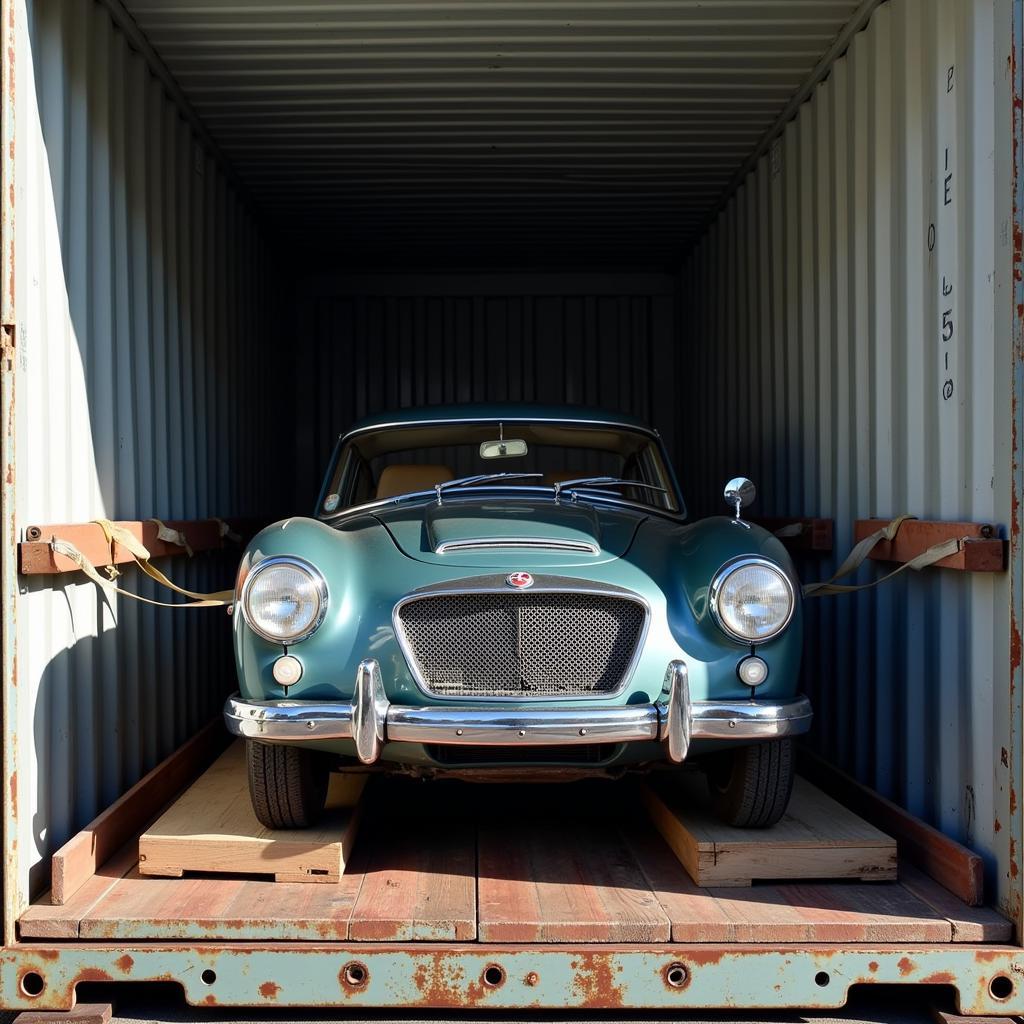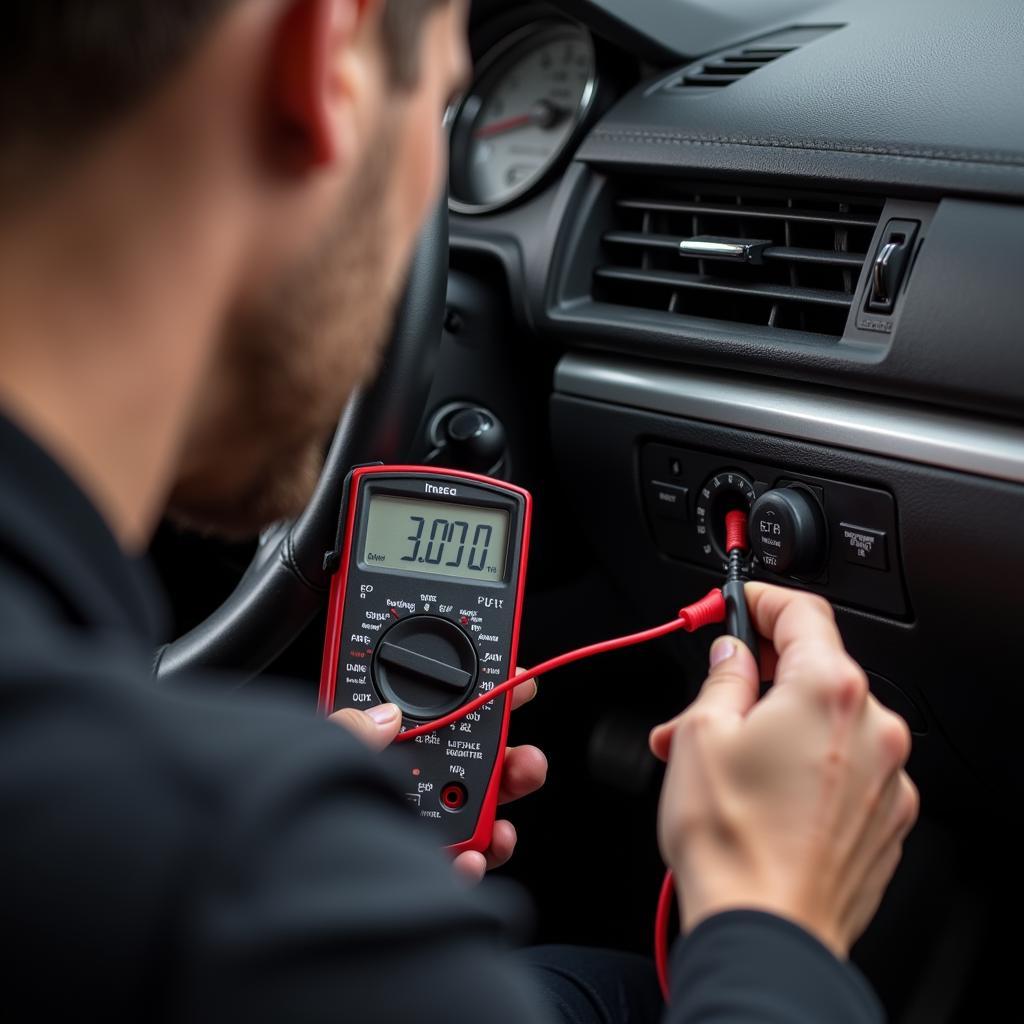Car Brake Problems Noise can be anything from a mild squeak to a grinding roar, signaling potential issues that require attention. Understanding the causes and solutions can save you money, time, and ensure your safety on the road. This guide will equip you with the knowledge to diagnose and address these noisy brake problems.
Why are My Brakes Making Noise?
Brake noise is a common issue, and while not always a sign of imminent danger, it shouldn’t be ignored. Several factors can contribute to noisy brakes, ranging from simple wear and tear to more serious mechanical problems.
Common Causes of Car Brake Problems Noise
-
Worn Brake Pads: This is the most frequent culprit. As brake pads wear down, a metal indicator makes contact with the rotor, resulting in a high-pitched squeal.
-
Glazed Brake Rotors: Overheating or improper braking can cause a hard, shiny layer to form on the rotor surface, leading to a grinding or scraping noise.
-
Rust and Corrosion: Moisture and road salt can cause rust to accumulate on rotors and other brake components, producing a scraping sound, particularly after the car has been parked for a while.
-
Sticking Caliper: A caliper that fails to release properly can cause continuous friction against the rotor, resulting in a grinding noise and excessive heat buildup.
-
Loose or Worn Hardware: Loose clips, pins, or other hardware in the brake system can vibrate and create various noises.
Diagnosing Car Brake Problems Noise: A Step-by-Step Guide
-
Listen Carefully: Pay close attention to the type of noise (squealing, grinding, clicking), when it occurs (while braking, at low speeds, after parking), and its frequency.
-
Inspect the Brake Pads: Check the thickness of the brake pads. If they are thin or the metal indicator is visible, replacement is necessary.
-
Examine the Rotors: Look for signs of glazing, scoring, or excessive wear on the rotor surface.
-
Check the Caliper: Ensure the caliper is moving freely and releasing properly.
-
Inspect Brake Hardware: Look for loose or worn clips, pins, and other hardware.
What does a grinding noise mean?
A grinding noise often indicates metal-on-metal contact, possibly due to worn brake pads or damaged rotors. This requires immediate attention.
What if my brakes squeak only when I first start driving?
This could be due to rust buildup on the rotors, which usually disappears after a few brake applications. However, persistent squeaking warrants further inspection.
Solutions for Car Brake Problems Noise
Addressing brake noise depends on the underlying cause. Here are some common solutions:
-
Replace Brake Pads: Worn brake pads require replacement.
-
Resurface or Replace Rotors: Glazed or damaged rotors can sometimes be resurfaced, but replacement is often the best option.
-
Clean and Lubricate Brake Hardware: Cleaning and lubricating clips, pins, and other hardware can eliminate noise caused by friction and vibration.
-
Overhaul or Replace Caliper: Sticking or seized calipers often require rebuilding or replacement.
-
Consult a Professional: For complex issues or if you’re unsure about any aspect of brake repair, consult a qualified mechanic. Brake systems are critical for safety, so professional attention is crucial.
“Regular brake inspections are key to preventing noise and ensuring optimal performance,” says John Smith, a certified automotive technician with 20 years of experience. “Don’t wait for a problem to arise; proactive maintenance is always the best approach.”
car with coefficient of friction problem
## Preventing Car Brake Problems Noise
Regular maintenance is crucial for preventing brake noise and ensuring the longevity of your brake system. Follow these tips:
-
Regular Inspections: Have your brakes inspected at least once a year or as recommended by your vehicle’s manufacturer.
-
Quality Brake Pads: Invest in high-quality brake pads designed for your vehicle’s make and model.
-
Proper Braking Technique: Avoid hard braking whenever possible. This helps prevent overheating and glazing of the rotors.
“Addressing brake noise promptly not only enhances driving comfort but also prevents more serious and costly repairs down the line,” advises Sarah Jones, a leading automotive engineer. “Don’t underestimate the importance of regular maintenance and timely repairs.”
Conclusion
Car brake problems noise can be a nuisance and a potential safety hazard. By understanding the common causes and solutions, you can take the necessary steps to address the issue and ensure your vehicle’s braking system is in top condition. Remember, regular maintenance is key to preventing noise and maintaining optimal braking performance. Contact us at AutoTipPro at +1 (641) 206-8880 or visit our office at 500 N St Mary’s St, San Antonio, TX 78205, United States for any assistance with your car brake problems noise.
FAQ
-
How often should I replace my brake pads? Brake pad life varies depending on driving habits and vehicle type, but they typically last between 25,000 and 70,000 miles.
-
Can I replace my brake pads myself? While possible, brake replacement requires some mechanical skills. If you’re unsure, it’s best to consult a professional.
-
How much does it cost to fix noisy brakes? The cost depends on the underlying cause and the necessary repairs. It can range from a simple cleaning and lubrication to more extensive repairs like rotor replacement or caliper overhaul.
-
Is it safe to drive with noisy brakes? While some noise might be minor, it’s crucial to have any unusual brake noise inspected to ensure your safety.
-
What are the signs of a failing brake caliper? Signs include pulling to one side while braking, grinding noises, excessive heat buildup in the wheel, and a spongy brake pedal.
-
How can I prevent my brakes from rusting? Regular driving helps prevent rust buildup on rotors. If your car sits for extended periods, consider applying a rust inhibitor to the rotors.
-
What type of brake pads should I use? Consult your vehicle’s owner’s manual or a qualified mechanic for recommendations on the best brake pads for your specific make and model.






Leave a Reply